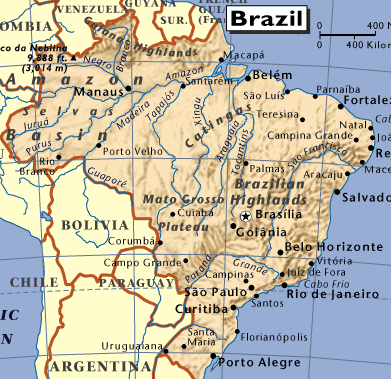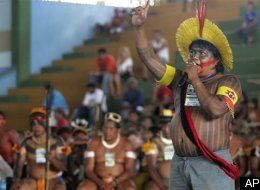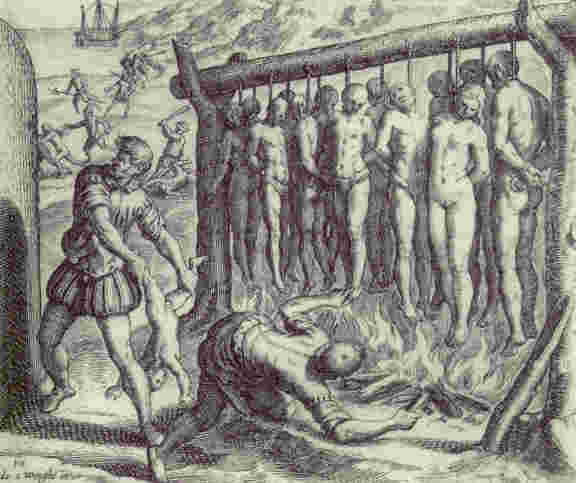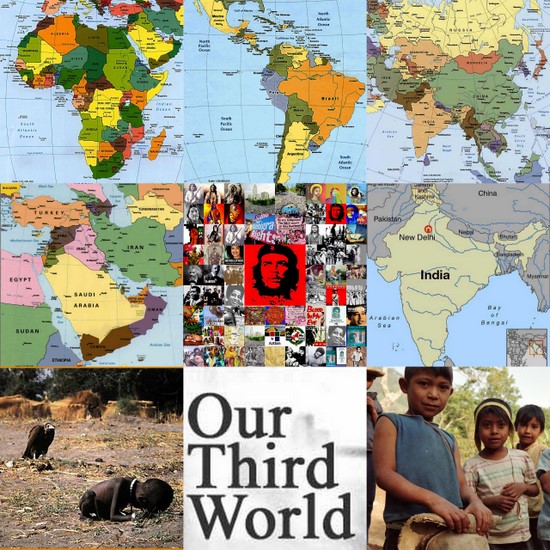
Killings of Indians in
Written by Marcy Picanço
Indians from Mato Grosso do Sul, Brazil At least 53 Brazilian Indians were murdered in nine states in Brazil during the year of 2008, according to a preliminary study by the CIMI (Conselho Indigenista Missionário - Indigenous Missionary Council).
In Mato Grosso do Sul alone, in the Brazilian
In comparison with 2007, when 92 assassinations of indigenous persons were registered, the number of cases identified in 2008 is approximately 40% lower. In Mato Grosso do Sul, the number of assassinations reported in 2008 (40) forty is nearly 10% lower than the number of cases from 2007 (53) fifty three.
In May, CIMI released a Report with data on the violations of indigenous rights in 2008. The report tracks numbers about threats, attempted murder, deaths due to lack of assistance (suicide, lack of medical attention....), invasions of indigenous lands, among others. The study is based on information from indigenous communities and in news journals from throughout the country.
The CIMI says that it continues to be alert to the grave situation of the Guarani Kaiowá in Mato Grosso do Sul. Between assassinations and suicides there were 74 cases in 2008 and 75 cases in 2007, in a population of approximately 40,000 people.
The lack of land and the confinement in small villages are the principal reasons, in the evaluation by CIMI, to the constant threat to physical and cultural survival of this people. For years CIMI and diverse indigenous activists have been alerting that the Guarani Kaiowá are victims of genocide.


In 2008, politicians of Mato Grosso do Sul and the large estate owners asserted forceful pressure against the initiation of anthropological studies for the identification of lands for the Guarani Kaiowá. The Federal Government has in part ceded to the pressures, which delay the process of the studies.
The state with the second greatest number of reports was Minas Gerais, with 4 indigenous persons assassinated, among these, a supporter of the campaign that reelected José Nunes de Oliveira, of the Xakriabá people, to mayor of São João das Missões.
Also in the electoral context, candidate for a city council seat in Cabrobó (Pernambuco), Mozeni Araújo de Sá, leader of the Truká people was assassinated.
Aggression and Omission
In addition to assassinations, in 2008, there occurred serious cases of aggressions on the indigenous peoples in all of the country. Prejudice, the dispute for land by agribusiness (sugar cane, soy, eucalyptus...) and hydro business are the causes of these aggressions in which, sometimes, the State, by means of the police, is the aggressor.
In the south of
In Maranhão, there were two assassinations registered. One of these was of a Guajajara child of 6 years of age, who was watching TV with the family, when the assassin passed on a road at the side of the village and randomly shot at the home where the little girl was.
There are constant cases of aggression by the population of Arame, Grajaú and other cities against the Guajajara who live in this region. In 2008, there was an invasion by wood cutters of the indigenous land Ararinóia and two attempts by gunfire against the Guajajara people, in one of these a couple was shot.
In Roraima, the indigenous people also suffered attacks, as a function of incitement of the dispute over the indigenous land Raposa Serra do Sol.. In May, employees of rice farmer Paulo Cesar Quartiero shot and launched bombs against indigenous persons who were constructing small wooden buildings within the land. On the occasion, 10 indigenous were injured and the leader of the rice farmers spent some days in jail.
In addition to aggressions that result in physical damage, the year of 2008 was marked by intense racist campaigns against the indigenous peoples in the country's leading communications media.
The judicial processes around the lands of Raposa Serra do Sol (Roraima state) and of the Pataxó Hã Hã Hãe (Bahia state), the struggle to improve indigenous health and the perspective of completing the identification of lands for the Guarani Kaiowá were the issues used to give voice to racism in the country.
Marcy Picanço works for CIMI (Indigenous Missionary Council).

This is actually a remote tribe of 'uncontacted Amazonian Indians' in Brazil...


++++++++++++++++++++++++++++++++++++++++++++++++++
Education for Liberation!
Peter S. Lopez aka: Peta
Email: peter.lopez51@yahoo.com
Key Link: http://www.NetworkAztlan.com



No comments:
Post a Comment